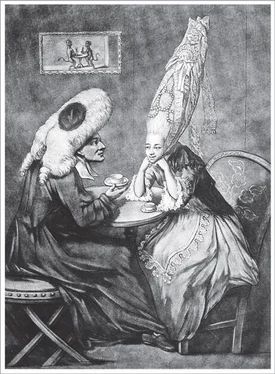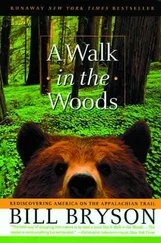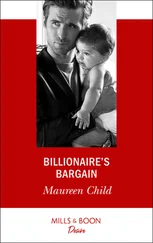Bill Bryson - At Home
Здесь есть возможность читать онлайн «Bill Bryson - At Home» весь текст электронной книги совершенно бесплатно (целиком полную версию без сокращений). В некоторых случаях можно слушать аудио, скачать через торрент в формате fb2 и присутствует краткое содержание. Жанр: Старинная литература, на английском языке. Описание произведения, (предисловие) а так же отзывы посетителей доступны на портале библиотеки ЛибКат.
- Название:At Home
- Автор:
- Жанр:
- Год:неизвестен
- ISBN:нет данных
- Рейтинг книги:4 / 5. Голосов: 1
-
Избранное:Добавить в избранное
- Отзывы:
-
Ваша оценка:
- 80
- 1
- 2
- 3
- 4
- 5
At Home: краткое содержание, описание и аннотация
Предлагаем к чтению аннотацию, описание, краткое содержание или предисловие (зависит от того, что написал сам автор книги «At Home»). Если вы не нашли необходимую информацию о книге — напишите в комментариях, мы постараемся отыскать её.
At Home — читать онлайн бесплатно полную книгу (весь текст) целиком
Ниже представлен текст книги, разбитый по страницам. Система сохранения места последней прочитанной страницы, позволяет с удобством читать онлайн бесплатно книгу «At Home», без необходимости каждый раз заново искать на чём Вы остановились. Поставьте закладку, и сможете в любой момент перейти на страницу, на которой закончили чтение.
Интервал:
Закладка:
Mr. Marsham lived on for not quite six years more. He died in a retirement home in a nearby village in 1905. He was eighty-three years old and, apart from time away for schooling, had lived the whole of his life on Norfolk soil, within an area just slightly more than twenty miles across.
IV
We started here in the attic—a long time ago now, it seems—when I clambered up through the loft hatch to look for the source of a leak. (It turned out to be a slipped tile that was allowing rain through.) There, you may recall, I discovered a door that led out onto a space on the roof giving a view of the countryside. The other day, I hauled myself back up there for the first time since I began work on the book. I wondered vaguely if I would see the world differently now that I know a little about Mr. Marsham and the circumstances in which he lived.
In fact, no. What was surprising to me was not how much the world below had changed since Mr. Marsham’s day but how little. A resurrected Mr. Marsham obviously would be struck by some novelties—cars speeding along a road in the middle distance, a helicopter passing overhead—but mostly he would gaze upon a landscape that was seemingly timeless and utterly familiar.
That air of permanence is of course a deception. It isn’t that the landscape isn’t changing, but that it is changing too slowly to be noticed, even over the course of 160 years or so. Go back far enough and you would see plenty of change. Travel 500 years backward and there would be almost nothing familiar except the church, a few hedgerows and field shapes, and the dawdling line of some of the roads. Go a bit farther than that and you might see the Roman fellow who dropped the phallic pendant with which we began the book. Go way back—to 400,000 years ago, say—and you would find lions, elephants, and other exotic fauna grazing on arid plains. These were the creatures that left the bones that so fascinated early antiquaries like John Frere at nearby Hoxne. The site of his find is too distant to be seen from our roof, but the bones he collected could easily have come from animals that once grazed on our land.
Remarkably, what brought those animals to this part of the world was a climate just 3 degrees Celsius or so warmer than today. There are people alive now who will live in a Britain that warm again. Whether it will be a parched Serengeti or a verdant paradise of homegrown wines and year-round fruit is beyond the scope of this book to guess. What is certain is that it will be a very different place, and one to which future humans will have to adjust at something much faster than a geological pace.
One of the things not visible from our rooftop is how much energy and other inputs we require now to provide us with the ease and convenience that we have all come to expect in our lives. It’s a lot—a shocking amount. Of the total energy produced on Earth since the Industrial Revolution began, half has been consumed in just the last twenty years. Disproportionately, it was consumed by us in the rich world; we are an exceedingly privileged fraction.
Today it takes the average citizen of Tanzania almost a year to produce the same volume of carbon emissions as is effortlessly generated every two and a half days by a European, or every twenty-eight hours by an American. We are, in short, able to live as we do because we use resources at hundreds of times the rate of most of the planet’s other citizens. One day—and don’t expect it to be a distant day—many of those six billion or so less well-off people are bound to demand to have what we have, and to get it as effortlessly as we got it, and that will require more resources than this planet can easily, or even conceivably, yield.
The greatest possible irony would be if in our endless quest to fill our lives with comfort and happiness we created a world that had neither. But that of course would be another book.
* A hundred years later when the significance of the find was finally realized, a geological period was named the Hoxnian after the village where Frere made his discovery.
* Pitt Rivers’s eldest son, Alexander, seems to have inherited his father’s affection for tormenting tenants. One, a man of previously mild character, was so driven to despair by young Alexander that he wrote “BLACKGUARD LANDLORD” with weed killer in large letters across the Rushmore lawn. Alexander sued for libel and was awarded token damages of one shilling, but rejoiced in the fact that the trial costs had reduced the tenant to destitution. Pitt Rivers’s other eight children seem mostly to have been pretty decent. George—the one banished from the estate and thus the inadvertent cause of his sister’s beating—became a successful inventor with a particular interest in electric lighting. He demonstrated an incandescent bulb at the Paris Exhibition of 1881 that was deemed the equal of anything produced by Edison or Swan.
* The name “bank holiday” was an odd one, and Lubbock never really explained why he elected to call it that instead of “national holiday” or “workers’ holiday” or something similarly descriptive. It is sometimes suggested that he meant the holiday only for bank workers, but that is not so. It was always intended for all.
• ACKNOWLEDGMENTS •
As ever, I am much indebted to many people for expert help and guidance in the preparation of this book, in particular the following.
In England: Professors Tim Burt, Maurice Tucker, and Mark White of Durham University; the Reverend Nicholas Holtam of St. Martin-in-the-Fields Church, London; the Very Reverend Michael Sadgrove of Durham Cathedral; Keith Blackmore of the Times; Beth McHattie and Philip Davies of English Heritage; Aosaf Afzal, Dominic Reid, and Keith Moore of the Royal Society; and the staff of the London Library and Durham University Library.
In the United States: Elizabeth Chew, Bob Self, Susan Stein, Richard Gilder, and Bill Beiswanger of Monticello; Dennis Pogue of Mount Vernon; Jan Dempsey of the Wenham Public Library in Massachusetts; and the staff of the Lauinger Library at Georgetown University and Drake University Library in Des Moines.
I am also indebted in ways too numerous to cite to Carol Heaton, Fred Morris, Gerry Howard, Marianne Velmans, Deborah Adams, Dan McLean, Alison Barrow, Larry Finlay, Andrew Orme, Daniel Wiles, and Tom and Nancy Jones. I must express particular thanks to my children, Catherine and Sam, for much heroic and good-natured assistance. Above all, and as always, my greatest thanks is to my dear and infinitely patient wife, Cynthia.
• BIBLIOGRAPHY •
The author’s full Notes on Sources may be found online at http://www.billbrysonbooks.com/notes.
Abse, Joan. John Ruskin: The Passionate Moralist . London: Quartet Books, 1980.
Ackroyd, Peter. Albion: The Origins of the English Imagination . London: Chatto & Windus, 2002.
Acton, Eliza. Modern Cookery for Private Families . London: Longman, Brown, Green and Longmans, 1858.
Adams, William Howard, ed. The Eye of Thomas Jefferson . Washington: National Gallery of Art, 1976.
Addison, Sir William. Farmhouses in the English Landscape . London: Robert Hale, 1986.
Alcabes, Philip. Dread: How Fear and Fantasy Have Fueled Epidemics from the Black Death to Avian Flu . New York: Public Affairs, 2009.
Alexander, Boyd. England’s Wealthiest Son: A Study of William Beckford . London: Centaur Press, 1962.
Allen, Edward. How Buildings Work: The Natural Order of Architecture . New York: Oxford University Press, 1980.
Amato, Ivan. Stuff: The Materials the World Is Made Of . New York: Basic Books, 1997.
Andrade, E. N. da C. A Brief History of the Royal Society . London: Royal Society, 1960.
Читать дальшеИнтервал:
Закладка:
Похожие книги на «At Home»
Представляем Вашему вниманию похожие книги на «At Home» списком для выбора. Мы отобрали схожую по названию и смыслу литературу в надежде предоставить читателям больше вариантов отыскать новые, интересные, ещё непрочитанные произведения.
Обсуждение, отзывы о книге «At Home» и просто собственные мнения читателей. Оставьте ваши комментарии, напишите, что Вы думаете о произведении, его смысле или главных героях. Укажите что конкретно понравилось, а что нет, и почему Вы так считаете.












